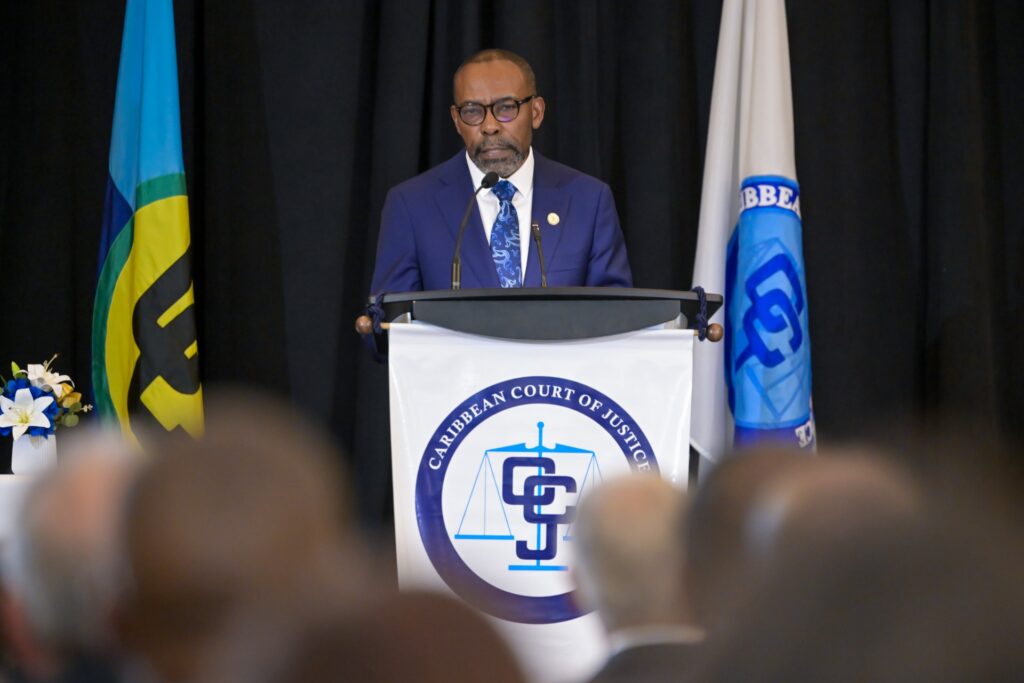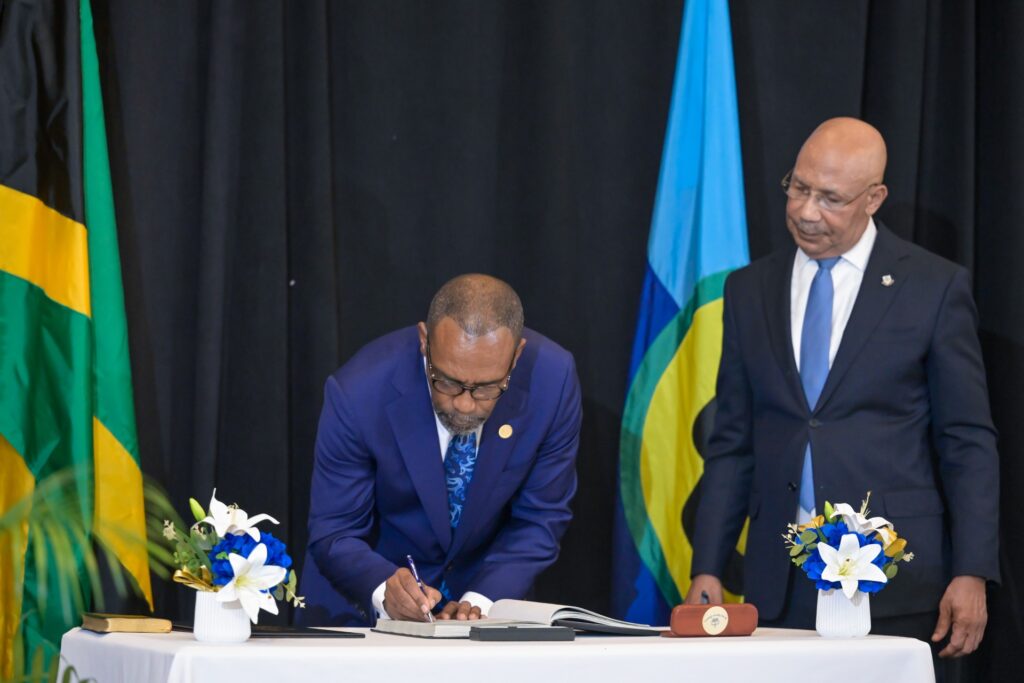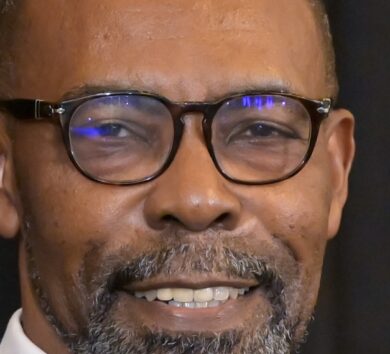

Justice Winston Anderson, newly sworn-in president of the Caribbean Court of Justice (CCJ), is urging Caribbean Community (CARICOM) member states that have not yet acceded to the court’s appellate jurisdiction to take steps toward accession.
Speaking during his swearing-in ceremony on Sunday (July 6) at the Jewel Grande Resort in Montego Bay, St. James, Justice Anderson appealed for greater support from CARICOM member states.

“After 20 years, the court has still not attracted the full support of all eligible states for the appellate jurisdiction required of a possible 11 states. I am hopeful that during my tenure, other states will fulfil their treaty obligations and become full members of the appellate jurisdiction,” he stated.
The president added that, “even as we maximise the use of technology, I would like for the court to intensify its itinerant citizens, so that the people of the region can see us and interact with us.”
Justice Anderson further noted that the CCJ stands as a powerful symbol of regional maturity and judicial independence.

“It has often been said, but it bears repeating on this occasion, that the CCJ is an emanation of our own collective imagination as a people. It was not imposed on us by anyone. Rather, it was conceived and established and is maintained by the people of the Caribbean to serve Caribbean interests,” he underscored.
The new president also highlighted the broad reach and influence of the court’s decisions, noting their impact even in CARICOM member states that have not yet acceded to its appellate jurisdiction.
“It is worth noting that in its appellate jurisdiction, the court has exerted reach and influence well beyond the five states of Barbados, Belize, Guyana, Dominica, and St. Lucia that have accepted that jurisdiction. CCJ-acquired cases are routinely cited and accorded faithful treatment by the judiciary in virtually every common-law state in the Caribbean,” he outlined.

Justice Anderson reaffirmed his commitment to leading the Caribbean Court of Justice (CCJ) in a manner that honours its founding vision and deepens collaboration with regional judiciaries.
“It is my intention to lead the CCJ in a manner worthy of its origins and its calling,” he pledged.







Comments